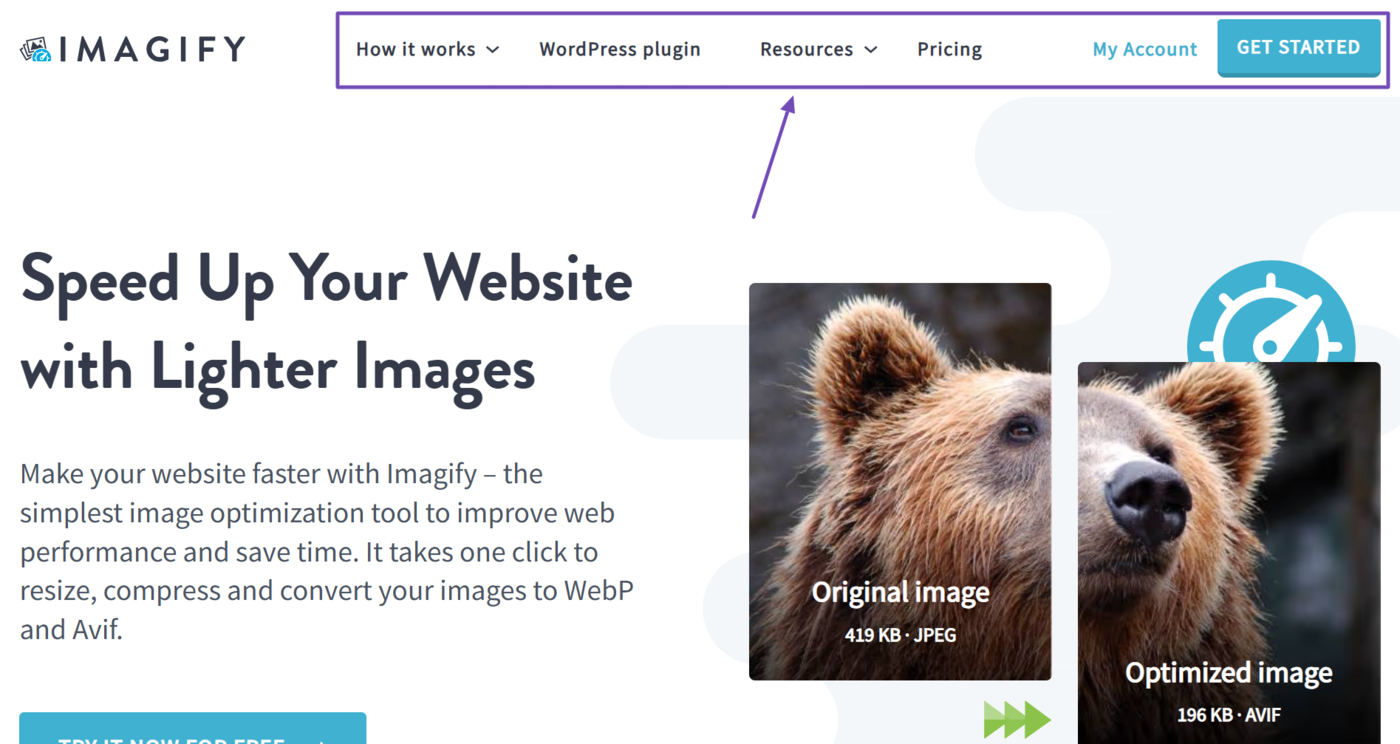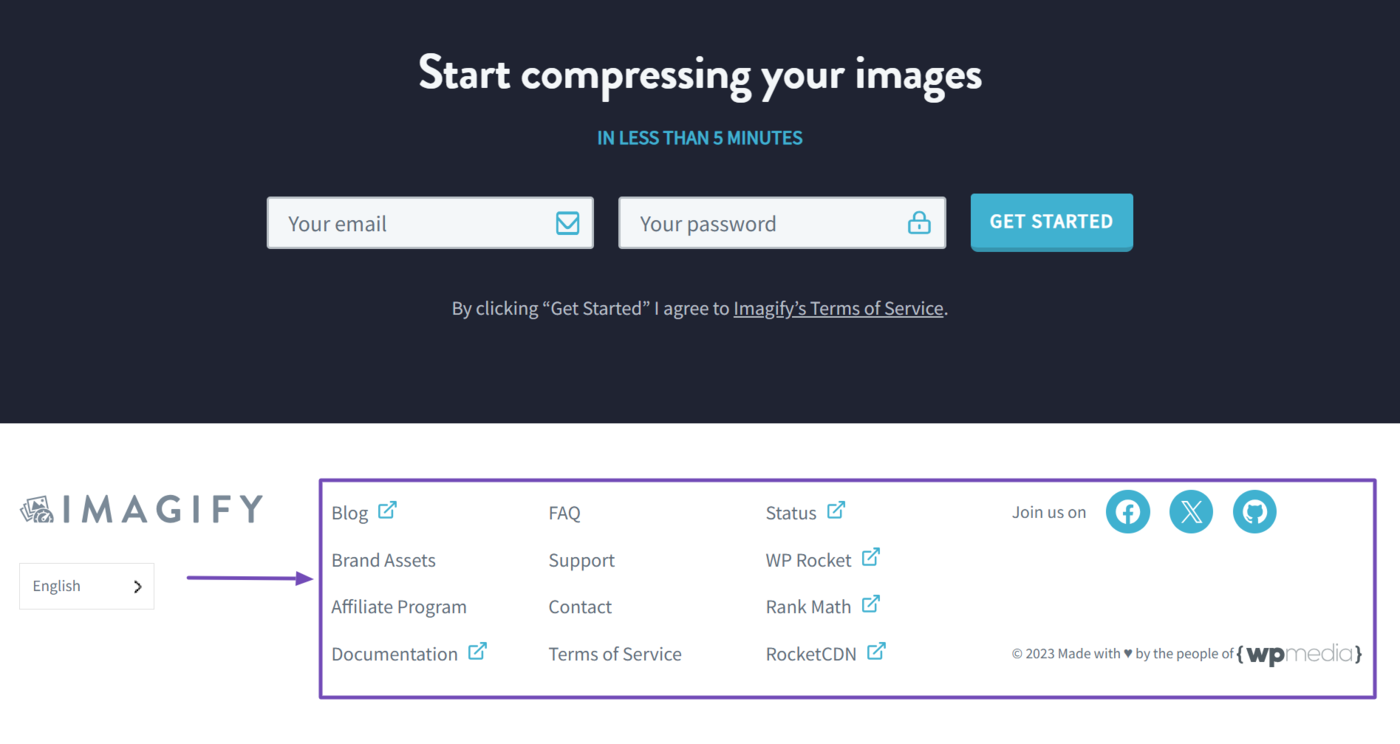What is a Sitewide Link?
A sitewide link is a link that appears on every page of a website. These links can be at various locations but are typically in the header and footer. They may also appear in the sidebar. For example, these are sitewide links in a site’s header.

Similarly, these are sitewide links in a site’s footer.

Sitewide links typically appear on every page except in instances where they are deliberately removed. They are usually sisäiset linkit pointing to the important pages on the site, so it is pretty standard to find them linking to category, contact, login, and about pages.
Sitewide links may also point to sister sites owned by the same company or partner sites collaborating with the site. They may also contain links to the site’s developer or software program that powers the site.
That said, Google suosittelee setting sitewide links to nofollow.
Importance of Sitewide Links
Sitewide links help visitors to navigate your site. This makes them particularly important to your käyttökokemusta because they guide visitors to your pages.
Visitors also typically rely on sitewide links to find specific links on your site. For example, visitors expect to find links to your category pages in your header and links to your about and contact pages in your footer.
When your links are missing from such areas, they hurt the user experience and cause visitors to begin looking for them at other locations or even leave your site altogether. In such cases, they can hurt the visibility and authority of your important pages.
Sitewide links also help to pass link equity ja Sivujärjestys to other pages on your important pages. However, they must be used sparingly and thoughtfully, as excessive or manipulative use can lead to manual action penalties from search engines for violating guidelines on unnatural linking practices.
Cons of Sitewide Links
Despite their benefits, sitewide links can have drawbacks when used wrongly. Overusing them or linking to irrelevant or low-quality pages can dilute link equity and harm your search engine optimization efforts.
Search engines will also view excessive or manipulative sitewide links as link spam, which could cause them to devalue the links or penalize the site. Additionally, poorly implemented sitewide links can create a poor user experience if they clutter the site or lead to irrelevant and unimportant content.
Are Sitewide Links a Ranking Factor?
Sitewide links may be a ranking factor, and manipulating them could cause Google to issue a manual action penalty against your site. However, this remains indefinite since Google has not confirmed such, and there is no evidence or otherwise to prove whether they are or are not a ranking factor.
However, while their impact as a ranking factor remains unconfirmed, they remain a controversial topic in SEO. Some bloggers think they can improve the rankings of the pages they point to, especially when the pages are on the same site.
Meanwhile, other bloggers fear that they may harm a site’s SEO and link building efforts, especially when they point to an external site. These bloggers believe Google may consider them unnatural and would penalize the sites with sitewide links.
That said, the general consensus is that sitewide links are typically not considered natural except in certain situations, such as when they link to a copyright page or developer site. Such links are also believed to be discounted, which means they have less weight than the natural links on the site.